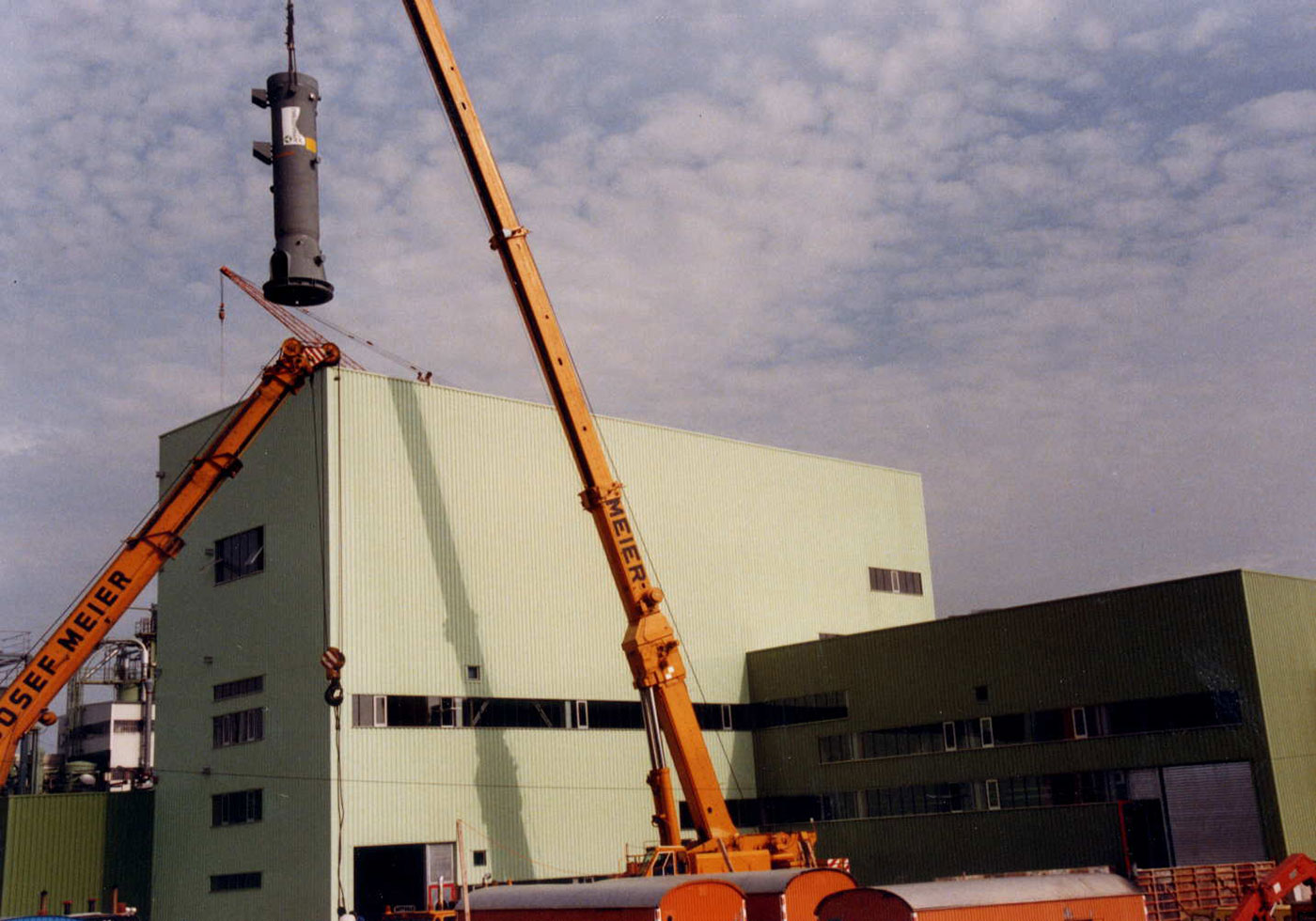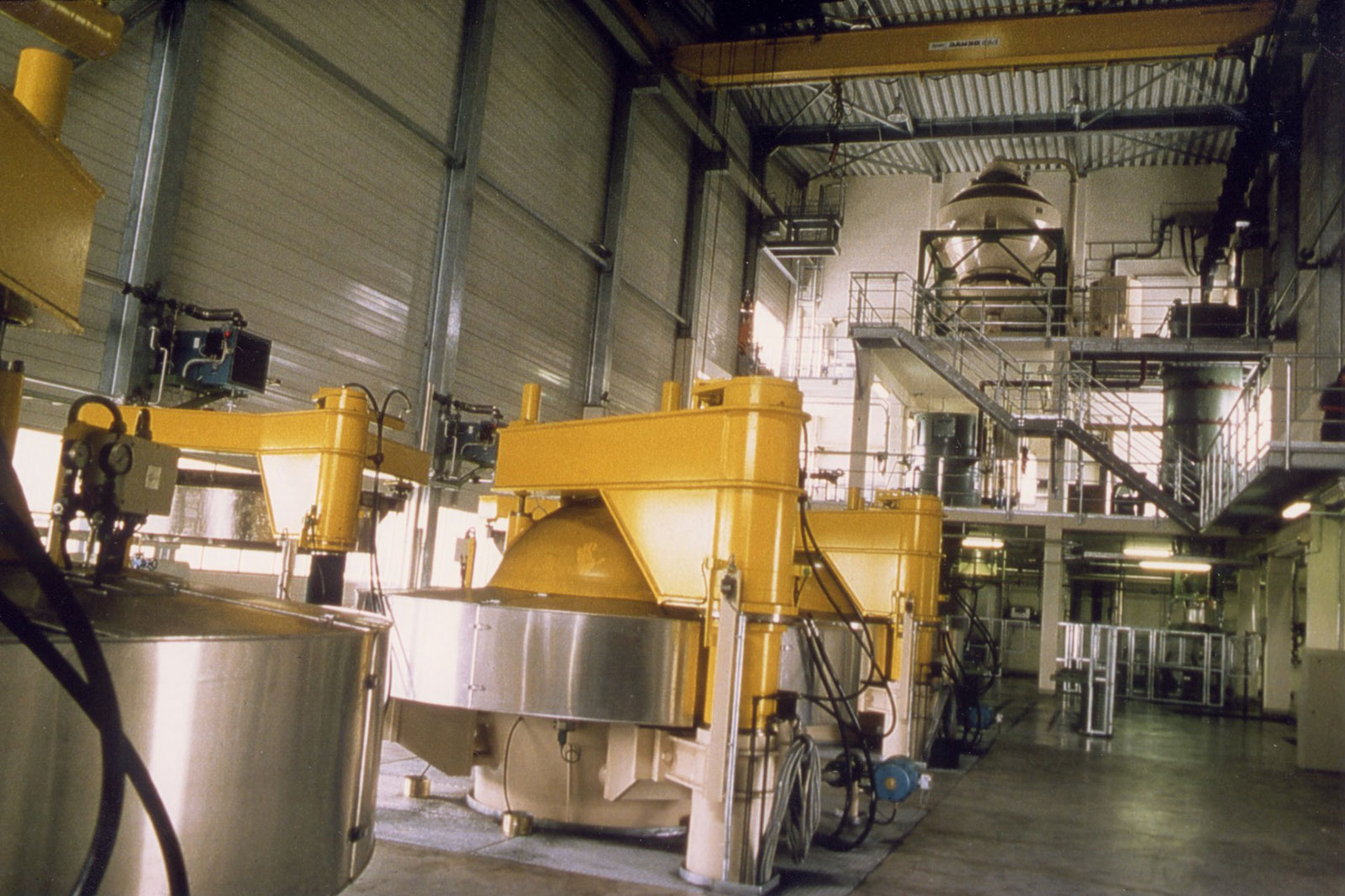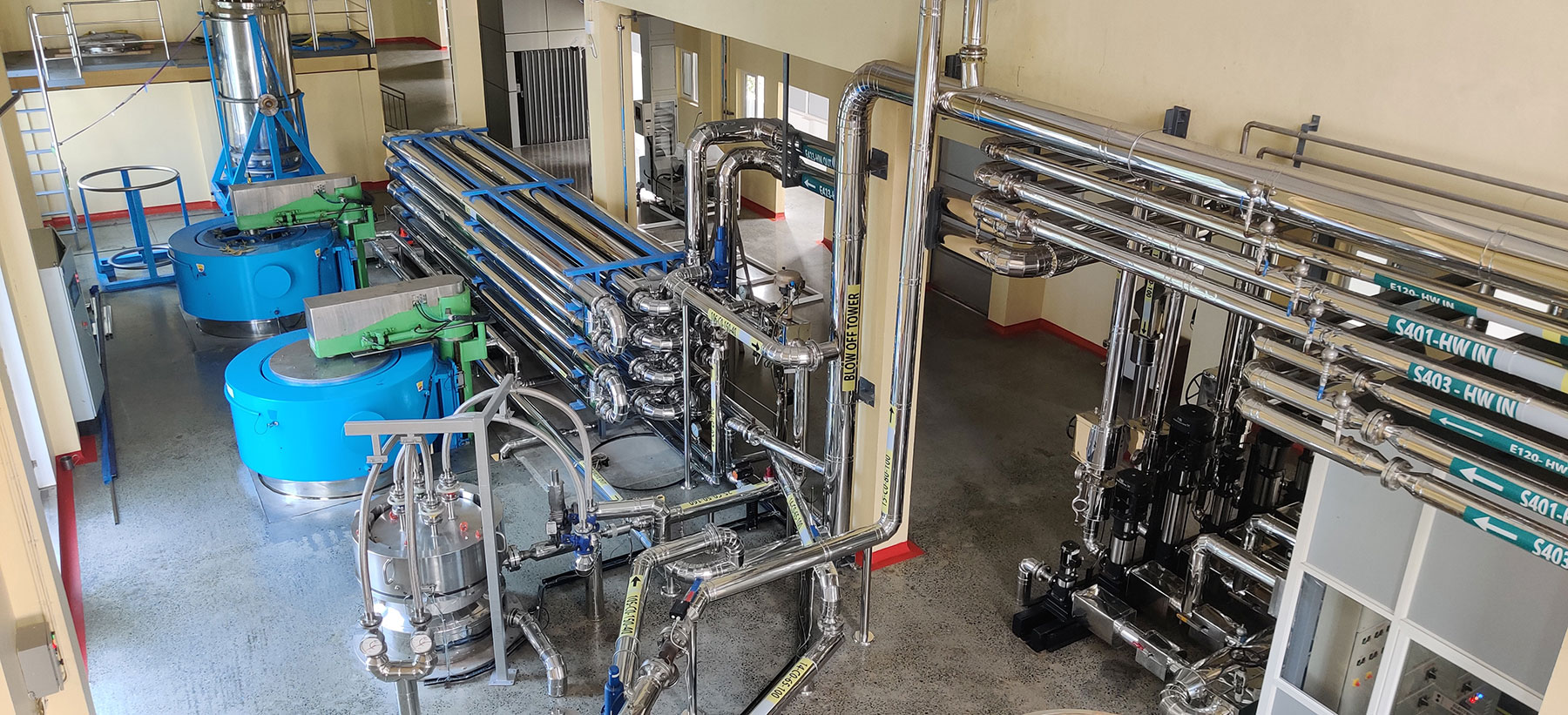Decaffeination plant for tea
Decaffeination of tea was the first industrial application for supercritical CO2 realized by Natex under the former name of Schöller Bleckmann. It was innovative back then, but it is a still increasingly interesting application of supercritical CO2 technology due to a global trend in consumer awareness and the desire to reduce chemical solvents like Dichloromethane or ethyl acetate. The capacity of the plant was originally designed to be 3.000 tons of black tea. It used an isobaric process, which made it energy efficient because there is no need for evaporation or condensation of the CO2 during the normal extraction process but with the downside of losing the caffeine in this early stage. Nevertheless, there are also other possibilities to recover the caffeine and make it a valuable product. The advantages compared to other decaffeination processes for tea are:
Preservation of Flavor: This method retains the original flavor and aroma compounds of the tea, ensuring a more flavorful decaf experience.
No Chemical Residue: Unlike solvent-based methods, supercritical CO2 leaves no harmful chemical residues, making the tea cleaner and more natural.
Environmental Friendliness: CO2 is a naturally occurring substance and its use in decaffeination is more environmentally friendly compared to chemical solvents because it can also be recycled up to 99%.
Controlled Caffeine Removal: The amount of removed caffeine can be adjusted and therefore it allows for diverse reduced caffeine products.
High quality caffeine: The side product of the process is caffeine which can be ~85% of the original content but highly depends on the type of tea which is processed.
Organic processing: The tea decaffeinated with supercritical CO2 can remain in its original “Organic” or “Bio” certification.
This special equipment was equipped with an automated transportation system for moving the baskets from the material handling into the extractors. This was a very innovative process back in 1986 but shows that Natex employees have been pushing the limits of the technical possibilities already back then.
Name of client: SKW/Degussa
Equipment size: 3x8m³
Country of installation: Germany
Product processed: decaffeination of tea




